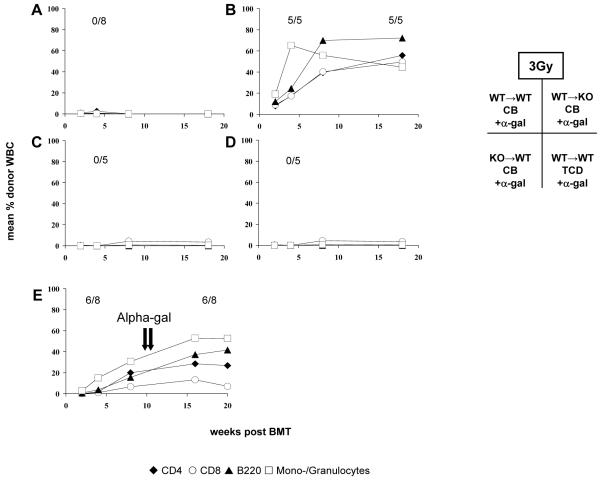Figure 3. Stimulation of NKT cells prevents induction but not maintenance of chimerism and tolerance.
Groups of BMT recipients received 3 Gy TBI with costimulation blockade (A-C, E) or in vivo T cell depletion (D), and in addition were treated with alpha-gal at the time of BMT (5μg i.p. on days −1, +2, +7, +14, +21) (A-D) or several months after BMT (5μg i.p. alpha-gal on days +70 and +77 post-BMT) (E). (A) WT→WT + CB + alpha-gal; (B) WT→KO + CB + alpha-gal; (C) KO→WT + CB + alpha-gal; (D) WT→WT + TCD + alpha-gal; (E) WT→WT + CB + late alpha-gal. After non-myeloablative TBI and CB, alpha-gal treatment at the time of BMT abrogated chimerism in recipients having NKT cells (A,C), but not in recipients deficient in NKT cells (B), indicating that the activation of recipient NKT cells is critical and sufficient for preventing BM engraftment. BM engraftment was also abrogated in recipients lacking T cells (D), suggesting that T cells are not required for BM rejection triggered by NKT cell activation. Late administration of alpha-gal did not affect chimerism (E).

